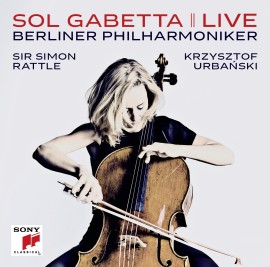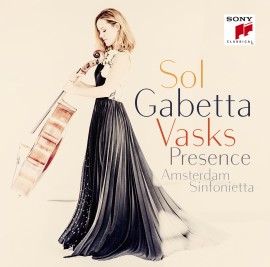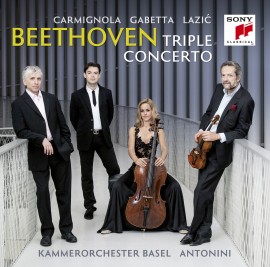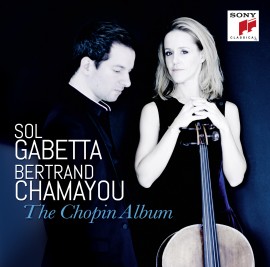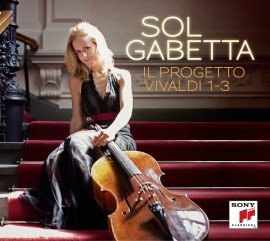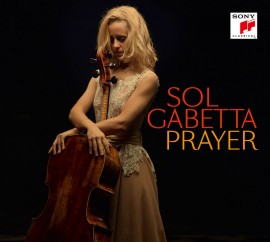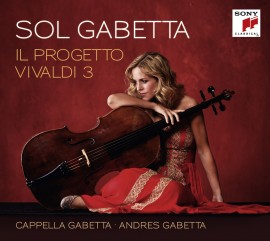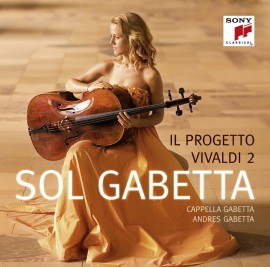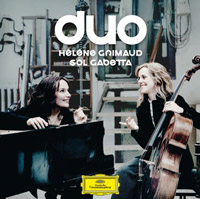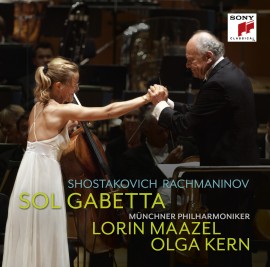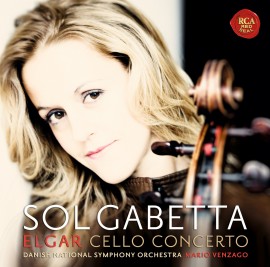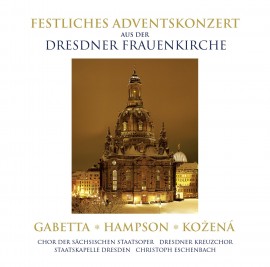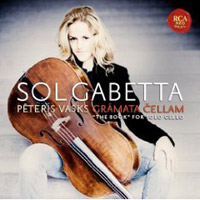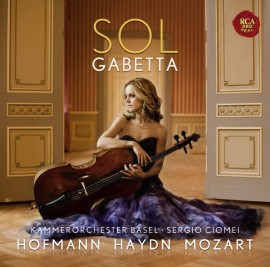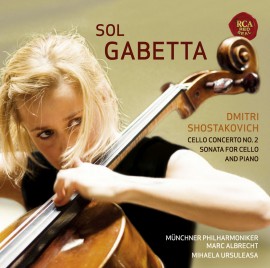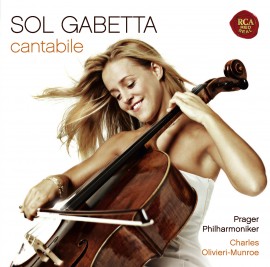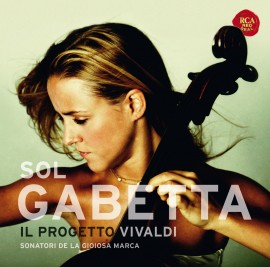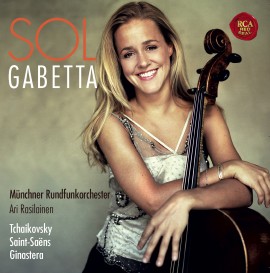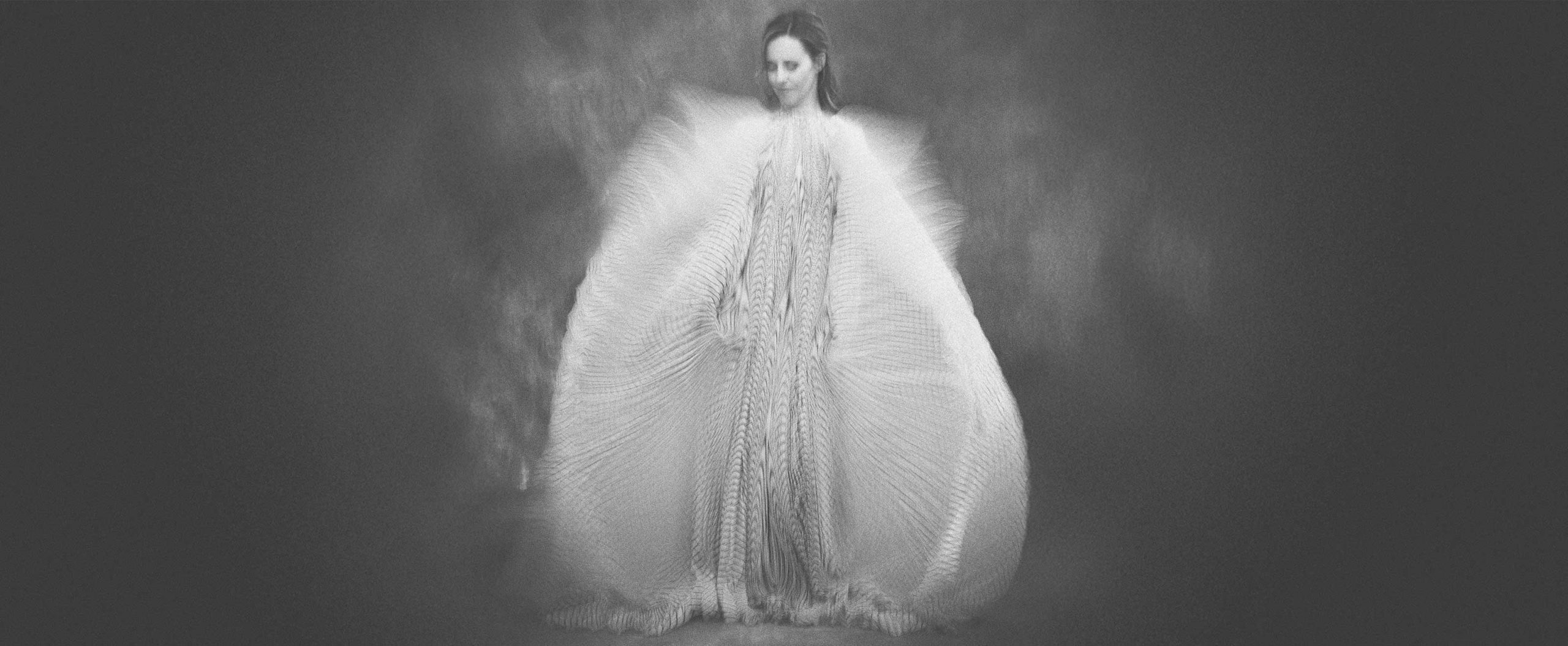Discography
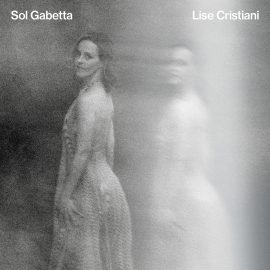
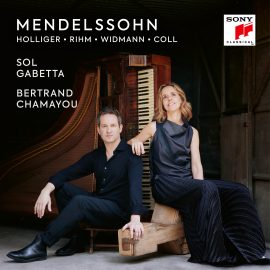
Mendelssohn
Sony Classical
January 2024
The Strad
You can rely on Sol Gabetta to present central repertoire with seemingly effortless aplomb and bags of personality. And while time spent with Mendelssohn’s two major masterpieces for cello and piano – the Second Sonata and the Variations concertantes – is never time wasted, it’s good to hear the First Sonata played with the same level of passion and involvement.
Gabetta and Bertrand Chamayou have been playing the Second Sonata together for several years and their rapport is evident from these propulsive, responsive performances. She plays the ‘Bonamy Dubrée-Suggia’ Stradivari of 1717 – formerly in the possession not only of the cello goddess Guilhermina Suggia but also of Pablo Casals – strung with steel-wound gut-core strings. This has a less outgoing overall tone than the 1730 Gofriller (conventionally strung) she uses elsewhere in the set, richer at the extremes of the range than in the middle. Chamayou, meanwhile, chooses an 1859 Blüthner, with its telling tonal variance from almost blunt bass to drily clangorous upper treble. The pairing of the two instruments in the hands of these foremost players is an added attraction in the Mendelssohn.
Further attraction is provided by a short second disc presenting works commissioned by Gabetta to muse upon Mendelssohn’s Song without Words. Jörg Widmann’s Lied ohne Worte adopts aspects of Mendelssohn’s language and refracts them through its composer’s own aural lens; Heinz Holliger’s three Lieder ohne Worte employ a panoply of extended techniques and expressive devices for a more alienating sound world. Francisco Coll’s Dialog ohne Worte is sustained and lyrical; and while Wolfgang Rihm’s Lied ohne Worte is more halting, his Verschwundene Worte (‘Vanished Words’) returns to a more diatonically based landscape. It’s a fascinating pendant to the main event, so come for the Mendelssohn but stay for the new works.
The Guardian
The cellist Sol Gabetta and pianist Bertrand Chamayou are far from the first duo to record Mendelssohn’s complete works for cello and piano, but they bring to them an ease and freshness that makes this new set very rewarding. Gabetta’s cello soars through Mendelssohn’s long melodies, in conversation with the buoyant but mellow tone of Chamayou’s mid-19th-century fortepiano. That softer keyboard sound doesn’t lead to any loss of definition: on the contrary, those restless, rippling accompaniments seem to bounce from Chamayou’s fingers, clear and transparent.
The five works are presented in chronological order, finishing with the Op 109 Song Without Words. Then comes the second part of Gabetta’s Mendelssohn project: responses to that piece from four other composers. Heinz Holliger contributes three tiny, Webern-like movements that continue a set of Songs Without Words that he wrote years ago for violin and piano. Francisco Coll’s Dialog ohne Worte packs an expansive punch into its few minutes; it’s a world away from the second of Wolfgang Rihm’s two miniatures, a haunting lullaby almost too delicate to be played. But the composer who plays the game the most stylishly is Jörg Widmann, his homage an aptly Romantic, bittersweet duet which flies off into pieces only to be put uneasily back together again.
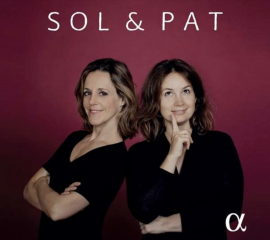
SOL & PAT
Alpha Classics
October 2021
This album celebrates a musical rapport that has lasted for twenty years and, above all, a true friendship: ‘We’re like two sisters, on stage and in life’, as Patricia Kopatchinskaja and Sol Gabetta like to say. In parallel with their dazzling solo careers, they have frequently got together for concerts in trio or double concerto formation (like the one written for them by Francisco Coll, recently released on ALPHA580). But they have conceived their new recording for a rather rare combination, the violin-cello duo – with the aim of choosing pieces they found interesting either stylistically or for the way they use the instruments. The programme includes the Duo written by Zoltán Kodály in 1914, which was not premiered until 1924, two years after Maurice Ravel’s Sonata for violin and cello, along with a few forays into the Baroque period (Leclair, Scarlatti, Bach) and, of course, works by twenty-first-century composers to whom the two soloists are very close: Jörg Widmann, Francisco Coll and Julien-François Zbinden are on the itinerary of this introspective journey into the generous world of two total artists.
Telegraph:
"Altogether this new CD is a delight, and suggests that “Sol & Pat” is destined to become one of classical music’s most sellable brands.”
"It’s a brilliant pairing, as they are the young(ish) female superstars of their respective instruments, and already have a reputation for performances of blazing individuality."
"the meeting of musical minds seems total, with a wonderful combination of discipline and freedom"
"One hopes the combination will be like apples and cheese, i.e. even more flavoursome in combination than when sampled separately. "
Limelight Magazine:
"Seldom have two idiosyncratic talents combined with such wit and artistry as violinist Patricia Kopatchinskaja and cellist Sol Gabetta, long-time collaborators on the concert platform and friends off-stage, produce in this effervescent exercise in musical acrobatics.”
"Quixotic, though it is, Sol & Pat is also a vivid display of fireworks and finesse from a crisply recorded duo keenly responsive to each other. Would that all duo performances had this same balance of acumen and adrenaline."
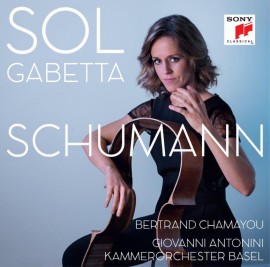
Schumann
Sony Classical
November 2018
Nur wenige Cellisten schaffen es, ihr Instrument zum Singen zu bringen, also, wirklich zum Singen. Sol Gabetta ist eine Meisterin darin: Ihre Schumann-Interpretation singt von der allerersten Note an, man kann gar nicht anders als mitgehen, mitfühlen… Das gilt für ihre hervorragende Einspielung des a-Moll-Cellokonzertes mit dem Kammerorchester Basel (Ltg.: Giovanni Antonini) und fast mehr noch für verschiedene Kammermusikstücke Robert Schumanns, die sie mit dem ihr sehr vertrauten Pianisten Bertrand Chamayou aufgenommen hat. (HR 2 Musiktipp 03.12.2018)
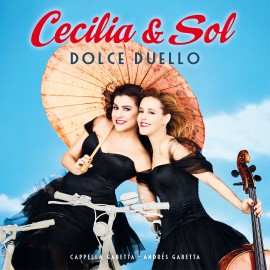
Cecilia & Sol – DOLCE DUELLO – A delectable collection of Baroque arias for voice and cello
Decca Classics:
November 2017
Unwiderstehlich - Das Album "Dolce Duello" von Bartoli und Gabetta gleicht einem sinnlichen Feuerwerk
Ganz unabhängig voneinander sprühen Cecilia Bartoli und Sol Gabetta vor Esprit und musikalischer Leidenschaft. Im Zusammenspiel für ihr gemeinsames Projekt "Dolce Duello" wird die geballte Wucht aus Talent und Charme zu einer überwältigenden Mischung. [...]
"Dolce Duello" transportiert in jeder Sekunde die Faszination der barocken Lebensart, sich lustvoll an den üppigen Reizen des Schönen zu erfreuen. Die Musikerinnen spornen sich dabei gegenseitig zu virtuosen Höchstleistungen an und lassen die bekannten Arien in ganz neuem Glanz erstrahlen. Ihre mitreißende Spielfreude überträgt sich im Nu und lässt das "süße Duell" zu einer köstlichen Sinnesfreude werden."
(Klassik Akzente 8.11.2017)
